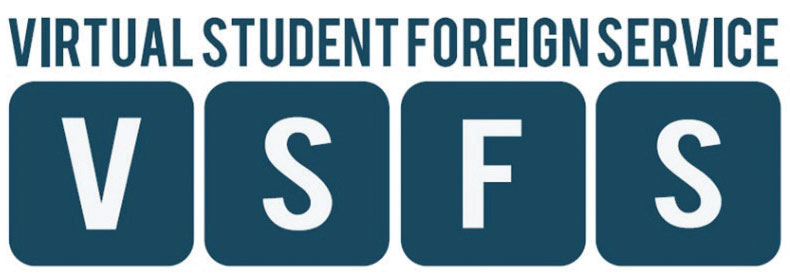How to Intern at State Without Leaving Home
The virtual internship is a unique avenue for students to gain experience in a particular field.
BY AHVA SADEGHI
A high grade-point average and a degree are not enough anymore. In the increasingly competitive job market for young people, there is a new trend that is now a “must-have” on a resume. It is an internship, more often than not, unpaid. This new requirement can be a very rude awakening for many poor college students. After all, internships are not just competitive; they are also extremely costly. Students have to pay for transportation, housing, professional clothes, food and more, to work for free.
However, with the tools of globalization, students can circumvent the burdensome costs of an internship by undertaking a virtual internship. The Department of State has designed the Virtual Student Foreign Service to allow American students the opportunity to intern for different agencies and posts abroad without leaving home.
Although there are many opponents of this type of internship, I can personally vouch for its effectiveness. After having interned in the offices of the Peace Corps, Colibri Center for Human Rights, Southwest Research Center and the Department of State, I could be considered something of an internship expert.
At first, I was quite skeptical about an online internship and how much I could gain from it. I know that my experience with online classes has not measured up to in-class lectures. However, as a student studying in Arizona, a virtual internship was an exciting opportunity. I could work for the State Department while I was studying at my home institution thousands of miles away!
There were more than 300 different internship jobs posted for VSFS when I applied in June 2013, so students are bound to find something that interests them. I “e-interned” for the Office to Combat and Monitor Trafficking in Persons. I am the founder of the Human Rights Club on my campus, and am passionate about combating human trafficking, so this was a dream internship for me.
I poured my heart into it, and invested more than 20 hours a week doing media research and translating from Farsi and French on a variety of human trafficking topics: individuals trafficked for the sake of suicide bombing, forced begging and Quranic schools, forced labor and trafficking in the hospitality industry.

Some say that a virtual internship does not provide students with real professional development and networking. However, that is far from the truth. I had to learn to communicate with formal language via phone, email and Skype with my VSFS supervisors. I was expected to promptly return emails and had to be on time for all phone and Skype sessions, for which I dressed professionally.
My intern supervisors acted as mentors, offering me professional development, academic advice and valuable letters of recommendation. They even made the effort to introduce me virtually to other professionals in my field to expand my network. Maybe I was not sitting at an office desk from 8 a.m. to 5 p.m., but I gained valuable professional experience working directly in my field.
Overall, the internship surpassed my expectations, and the virtual component enabled me to apply myself to meet high standards. Like any internship, you get as much out of it as you put into it.
U.S. News & World Report states that “internships are a near necessity in the quest to find a job in today’s market.” The virtual internship is a unique avenue for students to effectively gain experience in their field. Now it’s time for more students to capitalize on globalization and technology. Financial and geographic obstacles are no longer an excuse.
As the saying goes, “Where's there's a will, there's a way.” Take advantage.
Read More...
- Virtual Student Foreign Service Program (State Department website)
- AFSA’s First Virtual Student Foreign Service Intern (The Foreign Service Journal)
- Degrees are Great, but Internships Make a Difference (U.S. News & World Report)
- Virtual Student Foreign Service Introduction (YouTube)
- AFSA Internships (AFSA)


